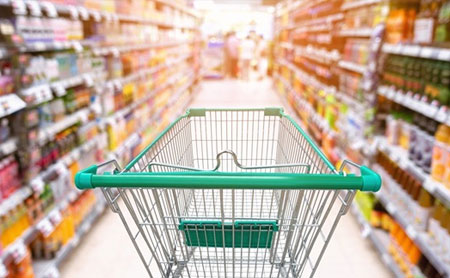The ban on the sale of tobacco products in South Africa during lockdown has been the subject of furious debate, with the matter heading to the Supreme Court of Appeal over whether the government’s prohibition is justified.
In a webinar facilitated by financial services group, PSG on Tuesday (7 July), investigative journalist, Jacques Pauw, said that lockdown is only part of the reason the illegal cigarette trade in South Africa is thriving.
“The story heats up in 1997, when government increased the tax on cigarettes from 20% of the sale price to 50%,” Pauw said. “This suddenly made it very expensive to smoke and boosted the underground world of illegal cigarettes.”
After all, without the excise, you can sell your product below market price and still make a huge profit. Currently a pack of 20s costs R36 in a large retail outlet, of which the government gets R18. Even though it costs under R2 to manufacture a pack of smokes, he said.
The lockdown, however, has made it even more profitable to trade in illegal tobacco products. Supply and demand has meant that sellers can charge premium prices, well beyond what a legal pack of 20s would cost, if you could buy one, Pauw said.
The government could have already lost up to R4.5 billion in revenue as a result of the tobacco ban.
A number of prominent South African companies published an open letter to Cyril Ramaphosa, asking him to lift the country’s ban on the sale of tobacco products.
The letter – which was published by the Sunday Times – included prominent signatories such as the British American Tobacco, SAAI, Fresh Stop, South African Tobacco and retailer Spar.
The group said that the ban has also cost the country R3.5 billion in excise taxes to date.
Why criminal tobacco networks are flourishing
Pauw said the criminal tobacco networks are flourishing because they haven’t been brought to book, and not just during lockdown.
He said that the last time SARS tried was 2012, when it launched operation Honeybadger to investigate and prosecute illegal tobacco. Driven by Johann van Loggerenberg, then head of the SARS Investigate Unit, the operation raided tobacco companies, withdrew licenses, and closed down manufacturers.
“By 2014, fifteen companies were facing criminal prosecution and tobacco smuggling had dropped off significantly. In 2012 tax evasion of tobacco products was worth R3 billion a year.
“Thanks to Honeybadger, contraband tobacco products dropped from 26% of the total market for tobacco products in 2013 to only 17% in 2014.”
Unfortunately, the figure is back up to 35-40% today, he said.
What happened?
“SARS was ready to pounce on the smugglers, had prepared the criminal cases, and then everything just stopped when Tom Moyane became Commissioner,” Pauw said.
“He disbanded the Investigative Unit and embroiled SARS in years of dysfunction with the sole purpose of protecting former president Zuma, his friends and family, and the Guptas from the many investigations underway into their nefarious exploits.”
Pauw said that it is not only smaller tobacco companies that are involved in the illegal tobacco trade, though they do get most of the blame. “The big companies are involved as well,” he said.
“In the 2017/2018 tax year, the 3 big tobacco companies – BAT, Japan Tobacco and Philip Morris – produced 19 billion cigarettes for the SA market, but tax was only paid on 15.3 billion cigarettes.” What happened to the other 3.7 billion?
“You can do the sums,” said Pauw. “It’s enough for 185 million packs of 20s with tax on that worth R4.6 billion. As such, government can’t afford to bring the big companies down.”
Looking at BAT alone, Pauw said the state can’t afford to be in conflict with the massive company as the state pension fund holds about 43 million shares of BAT at a value of R27 billion.
In addition, the GEPF holds 23 million shares in Reinet, whose biggest investment is in BAT.
“If BAT closes down, South Africa’s state pensioners will lose way over R30 billion, so the state can’t afford to be in conflict with BAT. Essentially, BAT is too important to fail.”
The lockdown has brought the criminal network of illegal tobacco traders into leafy, middle class suburbs, giving them a new foothold they didn’t have before, he said.
“Buying cigarettes during lockdown is against the law, but smokers justify it on the basis that their civil liberties have been infringed on.”
A recent study by the University of Cape Town found that the vast majority of smokers – over 90% – still have access to cigarettes. And some very peculiar brands are being smoked.
“People are smoking whatever they can, and many of them are being smuggled in over our borders, mostly from Zimbabwe and Malawi,” Pauw said. “The problem is, what’s in them, and what chemicals have they been treated with,” he asked.
He said the profits on smuggling illegal tobacco products are similar to the profits on smuggling cocaine. The difference, however, is that smuggling cocaine could lead to a prison sentence, while smuggling tobacco could get you a fine.
“This makes it a relatively ‘safe’ commodity to smuggle and is part of the reason that the illegal tobacco trade continues to flourish.”
Cigarettes and tobacco products remain banned under current legislation around the coronavrius in South Africa. The Fair-Trade Independent Tobacco Association has asked for urgent leave to appeal the high court’s dismissal of its challenge of the ban in the Supreme Court of Appeal.
Article Source: https://businesstech.co.za/news/trending/414201/why-illegal-traders-keep-getting-away-with-selling-illicit-cigarettes-in-south-africa/





